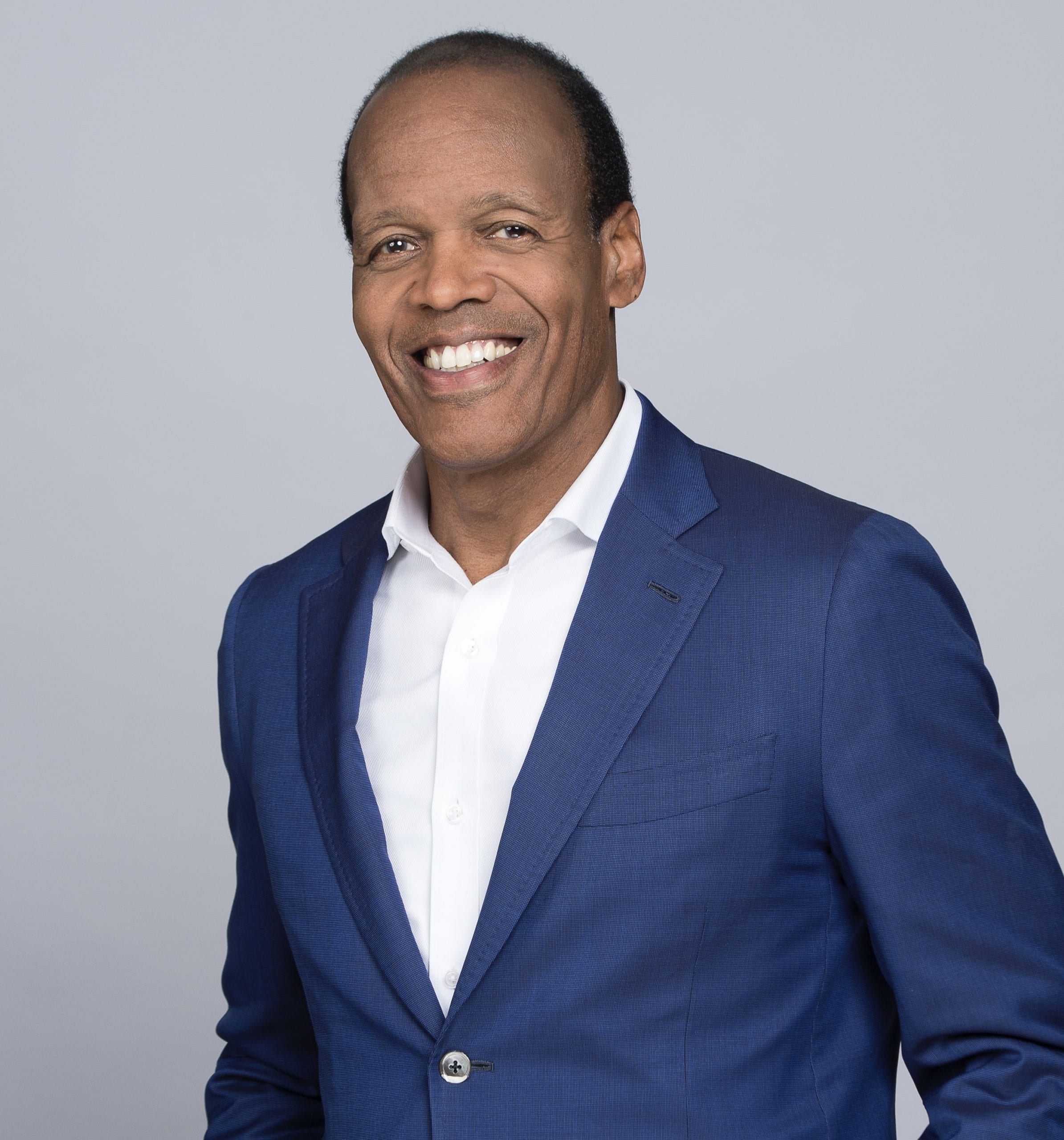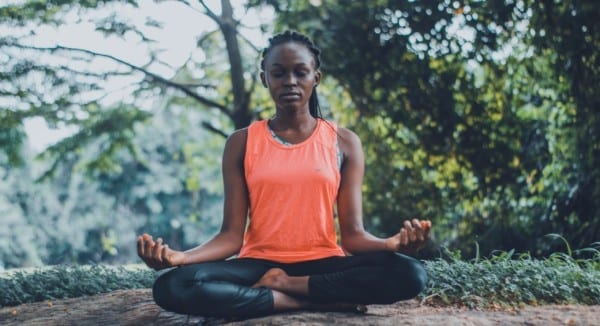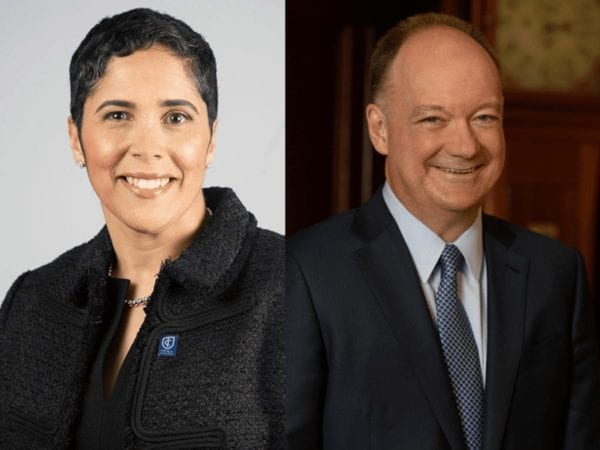In late December, we spoke with Lee Pelton, President of Emerson College and President-elect of the Boston Foundation, about supporting student wellbeing through one of the most turbulent years in history; confronting racism; and looking ahead to positive change in 2021. Here is the transcript of our conversation.
Marjorie Malpiede: We talked a couple of years ago about college student mental health, particularly as it relates to your students who are so incredibly talented and passionate. In fact, you have been a real advocate for college student mental health and have been a great participant in our work at the Mary Christie foundation. But the impact of 2020 on student mental health just sort of blows everything to a new level, right? From the pandemic to the painful political climate, to the traumatic examples of persistent racism that are still so raw. So my first question is, what are you most concerned about in terms of your students’ mental health and what should higher education be thinking about in terms of addressing these issues?
Lee Pelton: Well, it’s clear that the triple pandemic of COVID-19, economic devastation and the very public exposure of the structural and systemic racial inequities and barriers that have kept some of our students and of course some of our citizens in the nation from fully participating in American democracy, has had a profound and jarring effect on our students — who, exhibit in varying degrees, enormous mental fatigue, frustration, a sense of isolation, especially for students who are studying remotely by themselves, sometimes in very unfavorable conditions and circumstances. And of course, as you’ve noted depression.
Lee Pelton: Colleges and universities need to be, and I hope that we are, more attentive to our students, understanding that their needs are really very acute and urgent. What we’ve done at Emerson is we’ve consolidated our center for health and wellness and counseling and psychological services into an integrated counseling health and wellness center. We’re doing this really in the wake of the JED healthy campus project, coming to campus and highlighting the need to provide greater attention to student health and wellbeing and provide a robust and intentional college-wide program. And the circumstances of the current pandemic reinforced the need, I think as we all know, for colleges to think more broadly, intentionally and holistically about the health and wellbeing of not only students, but the entire college community.
Marjorie Malpiede: Clearly colleges like Emerson have been thinking about this, in terms of COVID-19 and mental health and as you say, what’s going on in society in general. And I should give a shout out to James Hoppe, your VP of Campus Life. I know he’s done some great work consolidating all of the services as you’re describing, including wellness services. Data are showing that what students are reporting has a lot to do, as you say, with isolation and a decrease in their sense of belonging. And this is not just a service delivery issue, I mean, this is really about how colleges can create environments for positive wellbeing and belonging. Would you say that’s correct?
Lee Pelton: That’s true. And I think we should also recognize that these issues disproportionately impact certain segments of our student population. Students from lower income populations will have less access to some of the resources that other students will have. I know for instance, that some students from certain populations don’t like to turn on the video in their Zoom class because they don’t want other students to see the conditions in which they live. And so that’s a very different approach to being educated than someone from a place of privilege.
Marjorie Malpiede: You’re right about that. And the pandemic has certainly shined a light on so many inequities when you think about student affairs issues. The income disparities, particularly, you’re just referring to. So talk a little bit about that, Lee, in terms of the work that we still have to do going forward, It has to do with mental health, of course, but also just to do with the way students arrive on campus in very, very unequal ways. Correct?
Lee Pelton: Well, absolutely they do. I’ll give you an example of what we’ve done at Emerson with respect to health and wellness. We’ve reallocated our existing resources so that we’ve increased substantially the counseling resources available to students. There are more clinical hours available over the summer term, we have some students here in the summer. We’ve increased hours assigned to case management and support for students seeking services off campus, let’s not forget the students who are off campus.
We’ve increased our allocation to the multicultural specialists, which is part of what we’re talking about here, to support and provide additional support to students of color. And over the last four years, we’ve more than tripled our counseling health and wellness resources. And I’m happy to report that half of our current counseling staff are people of color. So these are the kinds of efforts that we need to make in this area, understanding that the impact of the triple pandemic that I referred to earlier, disproportionately impacts certain populations in our student body.
Marjorie Malpiede: Fifteen years ago, it would maybe seem unusual to hear a college president talk so specifically about the mental health services that are available and how students are using them. So it really does speak to, A, your own commitment to it, but also how the issue of college student mental health has certainly risen up in the priorities of college presidents.I’ll refer to the Pulse Survey you, I’m sure, also saw that came out this week from the American Council of Education that showed that nearly 70% of presidents identified student mental health as among their most pressing issues. So I think all that is certainly good news.
Speaking of presidents, I think that you’re a great example of one that communicates frequently with students and sets a tone around culture on your campus. Your letter to your community after the killing of George Floyd was so profound, so powerful and so authentic given your own experience. And you ended by saying, “What are we going to do? That’s the real question.”
So I’m going to turn that to you. What should higher education be doing first, to address the racial trauma experienced by their black students. And also, to really bring about the social justice we so desperately need in this country?
Lee Pelton: The first it is a deep understanding and an acknowledgement of these troubling issues. You know, I wrote a letter to my community; actually, there were 7 to 8 million people around the globe that had access to it. So it struck a chord. And I talked about my own experiences and encounters with racism, some of it involving police, some of it not. And I wanted to make visible what was invisible. That is to say, I wanted everyone to understand that what happened to George Floyd, which was a galvanizing moment, it was not a new event but it was a galvanizing moment, that in some respects there are people like myself, people in power and privilege, black men and women, who have also suffered these racial encounters and indignities.
George Floyd’s death came about because of three reasons. One is he was invisible to Policeman Chauvin who put his knee on his neck for 8 minutes and 46 seconds until he cried out for his mom and said he couldn’t breathe. And he kept his knee on his neck, if you recall, for several minutes after George Florida lost consciousness. He was able to do that because he was invisible, he wasn’t human. And there was something embedded in that officer, and really in this country that structural and systemic, that made him think that this was okay.
But what I sought to do was to lift up this event as an example of the structural and systemic racism that has long plagued our country. And I want to make an important distinction here between what we would refer to as racism and bigotry, which are individual acts, and structural and systemic racism, which are those structures that are built in to our culture, our society, our legal system, that allow the racism to persist. Recognizing that they intersect with other issues with women’s struggles for rights, with LGBTQ and so on and so forth.
But those are two important distinctions. So to get to the answer of your question is, “What can you do? What can all of us do?” First of all is, come to terms with this issue and seek to understand it. And you understand it by understanding the history of structural racism in this country, going back now 401 years, beginning in 1619 when the first slaves were brought to this country.I received thousands of emails and letters and a lot of them stand out. And what was particularly memorable was a white man, probably in his 80s, who essentially said, “I got it, I get it. I understand it now, your letter made me understand it.” And so he showed me he had set up a GoFundMe page for Black Lives Matter.
Marjorie Malpiede: That is fantastic. It was an incredibly powerful letter. I had the pleasure of speaking to a number of black student athletes about these issues at Pitt. And one young man who was a track and field star said, “When I saw the video, all I could think about was my brother, my father, my uncle. It could have been any of us.” And his point was, he experienced it so much differently than so many of his peers. And I’m just wondering if you think schools are recognizing that difference and what you’re seeing around the country with your peers about some of the best practices of addressing that? Because it’s a different issue for black college students.
Lee Pelton: Well, as I said, it was a galvanizing moment and not just for students of color, but for white students as well. If you recall many protests and rallies that we had this summer, they were multicultural and multi-racial which I found to be positive. It was wonderful that students and young people were able to speak up and speak out and also tell their stories. So the colleges and universities have been galvanized as well.
On the other hand, this is not new. I think Nell Painter, the wonderful historian, says that America has an amnesia problem. That is to say, that we have these moments and they’re ephemeral, and then we go on and then we have another moment, another galvanizing moment. And so the question is what are we going to do in colleges and universities? And what I’ve concluded is that, how we normally approach these issues that that script will not work. Because we’ve used it over and over and over again and we still hear the same complaints from students from one generation to the next.
Lee Pelton: And the complaint can be boiled down to this, “I do not have a sense of belonging at this college. I understand that you, Mr. President and Mr. Dean and Ms. Dean and Ms. President, you’ve done all the things that you’re supposed to do in terms of hiring faculty of color, increasing the presence of students of color on campus. You’ve beefed up the counseling services, you’ve got culturally competent pedagogy and all of that. But my experience hasn’t changed.”
And so what we’re looking at doing at Emerson is to take a really deep, honest appraisal of our college culture to try to understand how it could be that after… It’s my ninth year here at Emerson. After having put into place so many different measures, how it could be that some students still feel as outsiders, that they don’t belong, that they move around in these spaces, principally white spaces, with a sense of alienation.
So, I’m saying all that because these issues are deeply structural and cultural. And it’s not a president’s problem. It’s not a faculty problem. It’s not a student problem. It is a community problem. And the only way that we can solve this — if “solve” is the right word? — the only way that we can make substantial progress, if we understand first of all that it is a community problem and the community must come together to figure this out.Because a president can’t do it on her own, a dean can’t do it on her own and a student group cannot, or groups, cannot do that.
And so we need to do a real deep dive into this. And so that’s what we’re seeking to do at Emerson. We haven’t figured it all out, but I’m absolutely convinced that it has to start with an honest appraisal of those things in our community and in our culture that make the experiences of some of our students and faculty that doesn’t feel as if they’re fully participating.
Marjorie Malpiede: There’s an awful lot of work to do and that was so helpful. Let’s talk a little bit about student activism – that’s something that we’re seeing more of, maybe a resurgence we haven’t seen in decades. Talk a little bit about that and why you think that’s important?
Lee Pelton: I’m often asked, “Is this a movement or a moment?” It’s certainly a moment, it’s not clear to me that it’s a movement. I am made hopeful by the fact that the participants in this moment have been really very diverse. And for the most part, despite what one might believe, have been extraordinarily peaceful and non-violent. One of the things that I find hopeful is that this moment has become a kind of training program for the future leaders of this nation. And I don’t know which ones will emerge, but I think you will see out of this young people who become community organizers, some whom may start their own nonprofits or work at nonprofits, and some who will go on to positions in politics and government.
Marjorie Malpiede: That would certainly be a silver lining, wouldn’t it? I want to stick on policy for a second and just ask you about your thoughts about it. The change in administrations should bring significant change, I would think, to higher education policies, specifically those that we cover in terms of student affairs like DACA, Title IX, college affordability, international students, visas, et cetera. That’s an awful lot of stuff and I don’t mean to throw them all at you to address. But, if you were to think about what you really hope will change with the Biden administration, what are you thinking? What are you most hopeful about?
Lee Pelton: Well, I think I’m most hopeful, and a lot of us are, that we’ll return to a sense of normalcy.
Less chaos in Washington and elsewhere. With respect to immigration, Biden’s got this issue of the Southern border and immigrants seeking asylums. And he’s going to take on that issue, that he would reverse Trump’s policies that separate families and have created spikes in deportation. They would end the ban on travel from certain majority Muslim countries. And of course that he would protect DACA students. And all of those, including the last one, will be heavy lifts for him. You know, the two big issues for colleges and universities still is access and affordability.
It would be wonderful if we could have the federal government and states providing more resources to colleges and universities so that we could increase both of those. The price and the cost, which is the net price, of colleges and universities have risen dramatically. And it’s made education at some of the places out of reach for middle-class and certainly other economic standings from having access to colleges and universities. So I think we need… It would be a federal plan that would help us make colleges and universities more accessible to a larger group of college going students.
Marjorie Malpiede: Speaking of policy impact… My last question is about your new role. So you’ll be moving on from Emerson at the end of this year to join The Boston Foundation as its president. It is certainly one of the premier community foundations in the country and has done an amazing, job here in the greater Boston area. As president, you’ll be in a position to actually impact policy for children and teens and young adults, not just college students. So my question is, will the emotional and behavioral health of this population group still be a priority for you in your new position?
Lee Pelton: Oh yeah. Yes, absolutely and every aspect of their health. They’re more Americans, and this really translates into children, who go hungry each day than there were eight months ago. In fact, that number has tripled, obviously that is a detriment not only to their physical health, but also their mental health. We are going to reach out with intentionality to the neighborhoods in Boston. We’re going to listen and learn and where we can, help to improve lives, particularly the lives of young people. And we’re going to do this through the equity lens, both social equity and racial. So yes, that’s very much on our list.
The Boston Foundation is supported by a three legged stool. It’s a grant maker and it supports nonprofits throughout the region. We partner with our donors to increase the impact of their philanthropy. And then The Boston Foundation is a civic leader in terms of its research, its ability to convene, collaborate on key issues facing the community. But what it has that’s unlike most community foundations is that it has, and it had from the beginning because it’s one of the oldest community foundations in the nation, a permanent fund. And this permanent fund allows The Boston Foundation to make discretionary gifts out of that fund. That fund is almost a half a billion dollars. And so we will use the permanent fund, as we always have, to change and transform the lives of people not only in Boston, but beyond.
Marjorie Malpiede: That is outstanding. Lee Pelton, President of Emerson College and Incoming president of The Boston Foundation. Thank you so much for your time today.
Lee Pelton: Thank you. It’s always a pleasure to be in your company.




